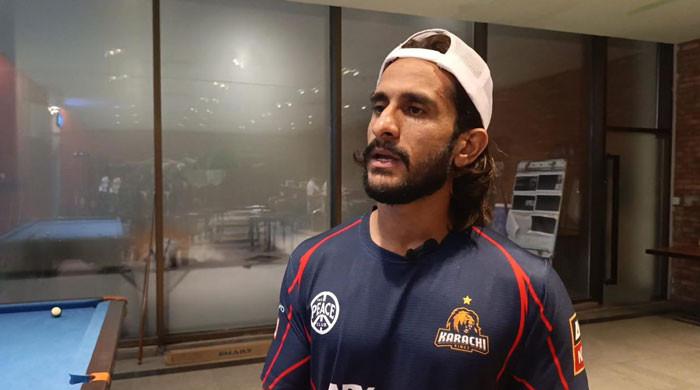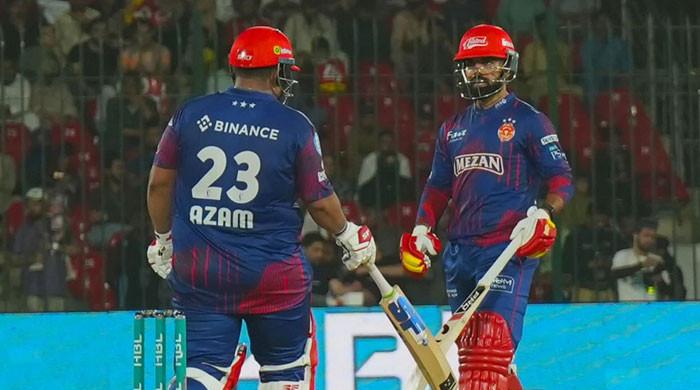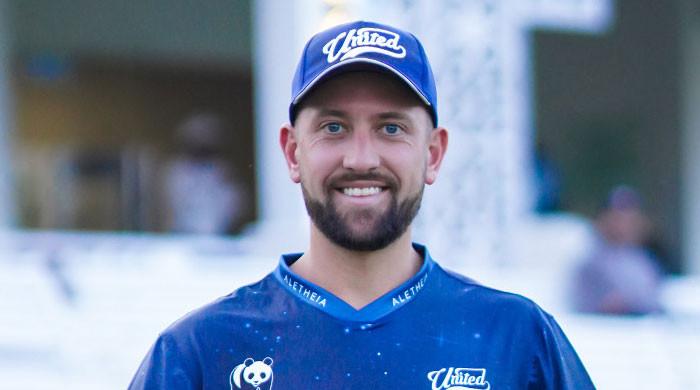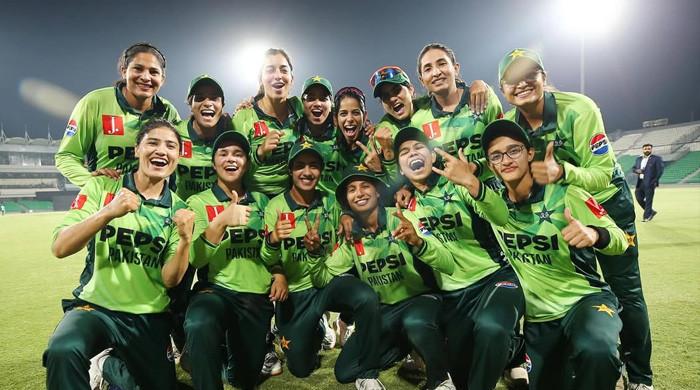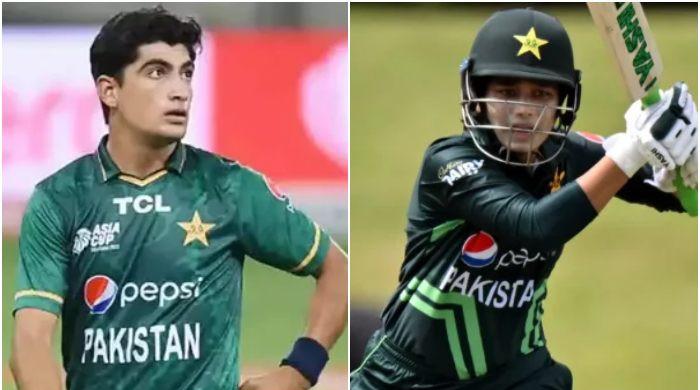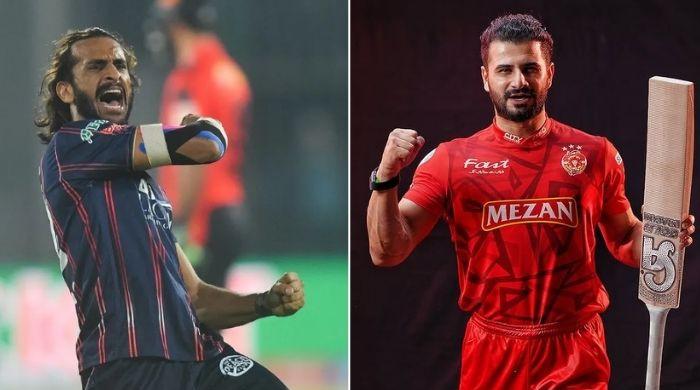Japan’s famous wrestler Inoki, who was defeated by Pakistan’s Jhara, dies aged 79
PM Shehbaz Sharif expresses deep grief over Inoki’s death
October 01, 2022
Mohammad Hussain Inoki, a Japanese professional wrestling star turned politician, who lost to Pakistan's Jhara in 1979 and was widely known for his match with Muhammad Ali, has died aged 79, after years of battling a rare disease, the company he founded said on Saturday.
Inoki became one of the biggest names on Japan's pro-wrestling's circuit in the 1960s. His fame went global in 1976 when he had a mixed martial arts match with boxing legend Muhammad Ali, billed as "the bout of the century".
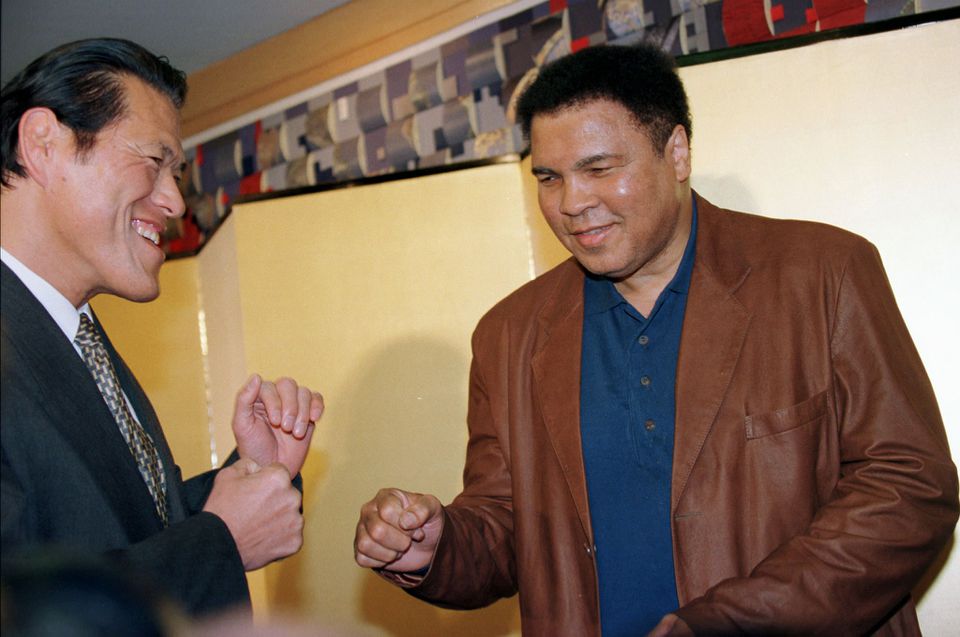
The lantern-jawed, 6-foot-three-inch performer entered politics, winning a seat in the upper house of Japan's parliament in 1989. He made headlines the next year going to Iraq during the Gulf War and intervening on behalf of Japanese hostages, who were subsequently released.
Inoki loved Pakistan and was attached to its people. He gained popularity in Pakistan after losing to Pakistani wrestler Jharra in 1979. After Jharra's death, Inoki supported the wrestler's nephew and brought him up in Japan under his supervision.
The famed wrestler believed in peace between Pakistan and India and wished to go for a peace walk at the Wahga Border.
Tributes to Inoki poured in across social media.
The prime minister of Pakistan Shehbaz Sharif expressed his condolences, saying that Inoki "mesmerised a whole generation". He also reminisced meeting the champion a decade ago.
Atsushi Onita, another pro wrestler turned politician, tweeted: "An era has come to an end."
"Thank you, Inoki-san. The supreme father of pro wrestling," he wrote.
Triple H, the current chief content officer of World Wrestling Entertainment and a former grappler, called Inoki "one of the most important figures in the history of our business, and a man who embodied the term 'fighting spirit.'"
With Geo News' cooperation, Inoki wanted to visit Pakistan and even recorded a message for the channel's viewers.
Inoki developed close ties with North Korea because his mentor, early pro-wrestling superstar Rikidozan, hailed from North Korea but could never go home after the peninsula was divided by war.
He made numerous visits to Pyongyang as a lawmaker and met high-ranking officials, saying Tokyo could play a role in mediating with its nuclear-armed neighbour.
In 1995, he organised a two-day "Collision in Korea" wrestling extravaganza before more than 100,000 spectators in Pyongyang's May Day Stadium. Inoki defeated Ric Flair in the main event with his signature "enzuigiri," a jumping kick to the back of the head.
The fight with Ali has been described as the birth of mixed-martial arts, now a multi-billion dollar industry dominated by the US-based Ultimate Fighting Championship.
Ali was supposed to be paid $6 million to lose in a fixed fight to Inoki, but the boxer had second thoughts upon arriving for the event in Tokyo, according to wrestling journalist Dave Meltzer. In the end, the fight was real, but under stipulations that Inoki could kick only while he had one knee on the mat.
"Inoki came out from round one on his back, crawling around the ring like a crab striking Ali's legs," recalled sports writer Robert Whiting in a 2016 podcast. "The entire fight, Ali threw a total of six punches. It was the worst thing I've ever seen."
The match went to a 15-round draw, and Ali ended up being paid only $1.8 million, Meltzer wrote.
On his YouTube channel, called "Antonio Inoki's Last Fighting Spirit," he was shown going in and out of the hospital in the last few years, raising a clenched fist as he went for treatment of systemic amyloidosis, a rare ailment involving a buildup of a protein called amyloid in the organs.





